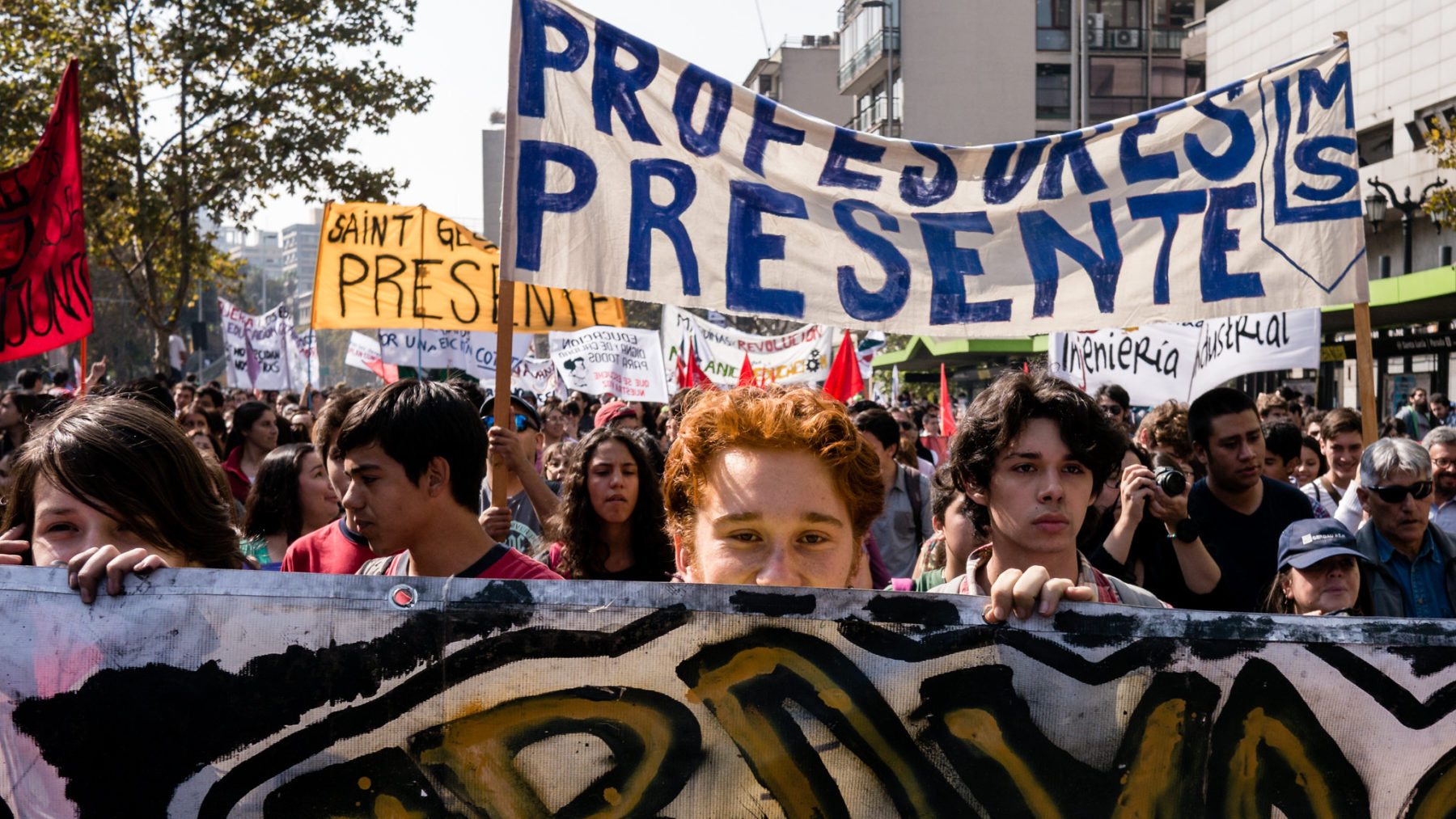Top student stories from around the world – 17 April
The Boar‘s latest feature reports important student-related stories from universities across the world each week.
This week’s global news stories come from Montreal, Canada where professors joined protests to protect students from riot cops and Chile where students protested against corruption, demanding education reform. April 14 also marks the one-year anniversary since nearly 300 Nigerian schoolgirls were kidnapped by terrorist group Boko Haram.
Professors join Montreal student protests
Faculty members of the University of Quebec joined the student protests in Montreal.
The student movement in Quebec had been losing momentum with fewer campuses joining the strike, when on April 9, hundreds of students disrupted classes to enforce the strike mandate they voted upon at the University of Quebec.
In response, the university administration called in the Montreal police who arrived in full riot gear, armed with pepper spray, tear gas, rubber bullets and batons at the ready.
The police stated that their role there was to ensure that classes occurred as scheduled.
Numerous reports were made of police violence on social media, and around 22 reported arrests happened as the riot police entered campus.
Students set up barricades while the police formed a line and prepared to move in. The officers were temporarily stopped when a professor in a paperboy cap moved to stand in front of the students.
The students began chanting: “Les profs! Avec nous!” (‘professors are with us’). Eventually, more professors joined until there was a second line of academics, linking arms, standing between the students and the police.
The professors then sent a delegation to the police station to demand the release of the 22 arrested students while remaining faculty members and students held a sit-in in the university’s largest common area.
Similar protests at Warwick University were met with police involvement which led to accusations of police brutality.
The demands put forward by the protestors include an end to all political expulsions, a lifting of the injunction mandating access to classes and no more cops on campus.
One of the causes of the protests was the fractious congress that led to the resignation and firing of the entire executive of the ‘Association pour une solidarité syndicale étudiante’ – an association for student union solidarity. The association is the largest student federation in the province.
MORE: Student protests continue in Quebec
Chile students protest corruption
Thousands of students marched through the streets of Chile’s capital, Santiago, on April 16 to protest recent corruption scandals and delays in a promised education reform.
Police estimated the protests at around 20,000, while student organisers said the crowd came to be 150,000 participants.
The gathering was a mostly peaceful protests, however violence broke out at the end when small bands of hooded protesters threw rocks and gasoline bombs at police.
Authorities claimed seven police officers sustained minor injuries and over 134 protesters were taken into custody.
Former student marches in Chile have focused on pressuring president Michelle Bachelet to fulfill her campaign promise of education reform.
According to the Association Press, students are now not only fed up of waiting for changes, but are disgusted by a series of corruption scandals evolving politicians and business elite.
The scandals include a controversy over a bank loan involving Bachelet’s son and campaign financing right-wing politicians and a prominent financial company.
Students brandished banners demanding changes in their education system which contains poor public schools, expensive private universities and unprepared teachers.
Aurora Isidora Rozas, spokeswoman for the coordinating assembly of high school students, told the Press Association: “We need to protest against this caste of corrupt politicians and businessmen who are involved and who are not ruling for a majority, and instead they are cooking up the reforms behind four walls.”
MORE: Students in Chile demand education reform
Boko Haram kidnapping of girls is remembered a year later
April 14 marks one year since the kidnapping of over 200 Nigerian schoolgirls by terrorist group, Boko Haram.
According to CNN, Nigeria’s elected president, Muhammadu Buhari, said: “This crime has rightly caused outrage both in Nigeria across the world.
“Today is a time to reflect on the pain and suffering of the victims, their friends and families. Out thoughts and prayers, and that of the whole Nigerian nation, are with you today.”
The 276 school girls were abducted on the night of April 14 in the town of Chibok, in north-eastern Nigeria, about a two hour drive from the border with Cameroon.
On the anniversary, the world has pledged solidarity to the cause with the hashtag #BringBackOurGirls, trending on twitter.
On Tuesday, Malala Yousafzai, sent a message to the kidnapped girls, “I am one of the millions of people around the world who keep you and your families foremost in our thoughts and prayers.
“We cannot imagine the full extent of the horrors you have endured. Please know this: We will never forget you.”
It is thought by some that Nigeria’s outgoing president, Goodluck Jonathan was defeated in his campaign for re-election because he failed to successfully combat Boko Haram. Buhari, the incoming president has pledged a more aggressive effort to tackle the group.

Comments